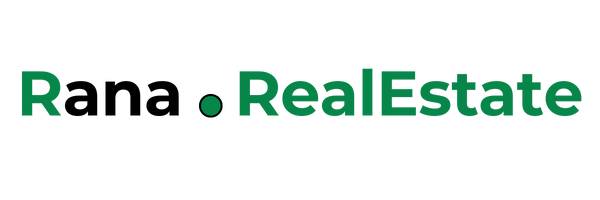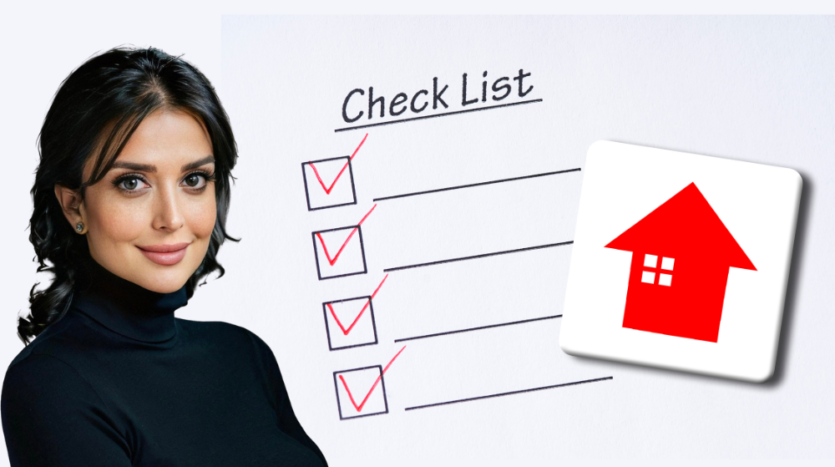Maintenance Tips to Protect Your Rental Properties
Owning rental properties can be a great investment, but it also comes with the responsibility of maintaining them to ensure they stay in good condition. Keeping up with regular maintenance not only protects your investment but also keeps tenants happy and avoids costly repairs down the road. Here are some simple and practical maintenance tips to help protect your rental properties.
1. Regular Inspections
One of the best ways to stay on top of your property’s condition is to conduct regular inspections. These can be scheduled quarterly, semi-annually, or annually, depending on the property and tenant agreement. During inspections, you can spot issues that need to be fixed before they become bigger problems. For instance, check for leaks, mold, pests, and wear and tear in plumbing, electrical systems, and HVAC units.
Why it’s important: Regular inspections help you catch small issues early before they turn into expensive repairs. Tenants may not always report minor problems, so inspections ensure that no issues go unnoticed.
2. Keep Up With HVAC Maintenance
The heating, ventilation, and air conditioning (HVAC) system is crucial for tenant comfort. Without regular upkeep, HVAC systems can fail, leading to costly repairs or even replacements. Schedule professional servicing of the HVAC system at least twice a year – in the spring and fall – to clean and inspect the system. Ensure filters are changed every 1-3 months, depending on the type of system, to maintain efficiency.
Why it’s important: Regular HVAC maintenance extends the life of the system, reduces energy bills, and keeps tenants comfortable year-round. A well-maintained HVAC also prevents emergency breakdowns, which can be disruptive and expensive.
3. Check Plumbing for Leaks
Water damage can be devastating to rental properties. Even a small leak can cause significant damage over time. Regularly check under sinks, around toilets, and near water heaters for any signs of leaks. Ensure that tenants report any leaks or slow drains immediately.
Also, during cold months, make sure pipes are insulated to prevent freezing, especially if the property is in an area prone to cold weather. Burst pipes from freezing can lead to major water damage and expensive repairs.
Why it’s important: Preventing leaks protects your property from water damage, mold growth, and structural issues. Timely plumbing repairs also save you from higher water bills caused by unnoticed leaks.
4. Keep Gutters Clean
Clogged gutters can lead to water overflowing and pooling around the foundation of your rental property, which can cause serious damage over time. Regularly clean out gutters, especially during the fall when leaves and debris can easily accumulate. This simple task can prevent water from leaking into the roof or causing basement flooding.
Consider installing gutter guards to help minimize the amount of debris that gets into your gutters, which reduces the frequency of cleaning needed.
Why it’s important: Clean gutters prevent water damage to your property’s roof, foundation, and landscaping. Neglecting this task can lead to costly repairs down the line.
5. Inspect and Seal Windows and Doors
Drafty windows and doors can lead to higher energy bills and discomfort for tenants. Inspect the seals around windows and doors to make sure they are tight and not letting air in or out. Replace any worn or damaged weather stripping, and consider adding caulking where necessary to seal gaps.
Additionally, check the locks on windows and doors to ensure they are functioning properly for tenant safety. Secure windows and doors also help prevent break-ins.
Why it’s important: Properly sealed windows and doors improve energy efficiency, reduce heating and cooling costs, and keep tenants comfortable. Secure locks are also vital for tenant safety and property protection.
6. Test Smoke and Carbon Monoxide Detectors
Ensuring the safety of your tenants is a top priority. Regularly test smoke detectors and carbon monoxide detectors to make sure they are working properly. Change the batteries at least once a year, and replace the units themselves according to the manufacturer’s instructions (typically every 7-10 years).
Encourage tenants to inform you immediately if a detector is beeping or malfunctioning, as this could indicate low batteries or a need for replacement.
Why it’s important: Functional smoke and carbon monoxide detectors save lives and reduce the risk of property damage. Many areas have laws requiring landlords to maintain working detectors, so keeping them up to code is also a legal responsibility.
7. Pest Control
Pests such as rodents, insects, and termites can cause significant damage to a rental property. Regular pest control treatments can help prevent infestations before they begin. Consider scheduling periodic pest control services, especially during the warmer months when pests are more active.
Additionally, make sure tenants are aware of ways to prevent pests, such as keeping food stored properly, disposing of trash regularly, and reporting any sightings of pests early on.
Why it’s important: Preventing pest infestations helps protect the structural integrity of your property and keeps it sanitary for tenants. Pest damage can be costly and difficult to fix if not addressed quickly.
8. Landscaping and Exterior Maintenance
The exterior of your property is just as important as the interior. Keeping the landscaping well-maintained not only improves curb appeal but also prevents potential problems. Overgrown trees or bushes can cause damage to the roof, windows, or siding. Make sure trees are trimmed, lawns are mowed, and any debris is cleared regularly.
In areas prone to snow, arrange for snow and ice removal to prevent slippery walkways and damage to the property’s roof or gutters.
Why it’s important: Proper exterior maintenance helps prevent damage to your property and ensures a safe environment for tenants. A well-kept exterior also enhances the property’s appearance, making it more attractive to future renters.
9. Plan for Seasonal Maintenance
Each season brings different maintenance tasks for rental properties. In the spring, focus on cleaning gutters, checking for water damage, and servicing HVAC systems. Summer is a good time to inspect the roof, clean air filters, and check for any exterior damage. In the fall, clean gutters again, winterize the property by insulating pipes, and ensure heating systems are working. Winter maintenance involves keeping walkways clear of snow and ice and checking for drafts.
Creating a seasonal maintenance checklist can help you stay on top of these tasks and keep your property in great shape all year round.
Why it’s important: Seasonal maintenance ensures that your property is prepared for weather changes and prevents damage caused by extreme temperatures, storms, or other seasonal conditions.
10. Set Clear Expectations with Tenants
Tenants play a significant role in maintaining your rental property. Make sure they understand their responsibilities when it comes to reporting issues, keeping the property clean, and notifying you of any needed repairs. Provide them with a clear list of what they are responsible for (such as changing air filters or keeping the lawn mowed, if applicable) and what they should expect you to handle.
Having a system in place where tenants can easily report issues – whether through an online portal, email, or phone – ensures that problems are addressed quickly.
Why it’s important: When tenants are clear on their responsibilities, it reduces the likelihood of misunderstandings and helps keep your property in good condition. Open communication ensures that small problems are reported and fixed before they escalate.
11. Have a Reserve Fund for Repairs
No matter how well you maintain your property, unexpected repairs will arise. Having a reserve fund specifically for property maintenance and repairs can help you handle these issues without financial strain. This fund can cover emergency repairs, like a broken water heater or HVAC system, or larger projects, like a roof replacement.
A good rule of thumb is to set aside 1-2% of the property’s value each year for maintenance and repairs.
Why it’s important: A reserve fund ensures that you are financially prepared to handle unexpected repairs or emergencies without delay, protecting both your property and your investment.
12. Hire Professional Help When Needed
While there are many maintenance tasks that landlords can handle themselves, some require professional expertise. Electrical work, plumbing repairs, and HVAC servicing should be done by licensed professionals to ensure safety and compliance with local regulations. Trying to fix these issues on your own may save money initially, but it can lead to bigger problems and higher costs in the long run.
Having a list of reliable contractors and repair professionals on hand ensures that you can quickly address any issues that arise.
Why it’s important: Hiring professionals for complex tasks protects your property from improper repairs, ensures tenant safety, and prevents costly mistakes.
Conclusion
Maintaining your rental property is an ongoing process, but staying on top of it ensures your investment remains in good condition, keeps tenants satisfied, and helps you avoid costly repairs in the future. By following these simple maintenance tips, you can protect your property, ensure tenant comfort, and maintain a successful rental business. Regular inspections, proper seasonal maintenance, and a proactive approach to addressing small problems before they become big ones are key to keeping your rental property in great shape for years to come.
Rana Real Estate Group is a trusted name in real estate, offering expert assistance for all your property needs. Whether you’re buying, selling, or investing, their experienced team provides tailored solutions and personalized service to help you achieve your goals. With a focus on integrity and transparency, they guide you through every step of the process, ensuring a smooth and successful transaction. Whether you’re a beginner or seasoned in real estate, Rana Real Estate Group is here to support you every step of the way.
Rana Khanjani, MBA
Specializing in Commercial, Residential, and Land

